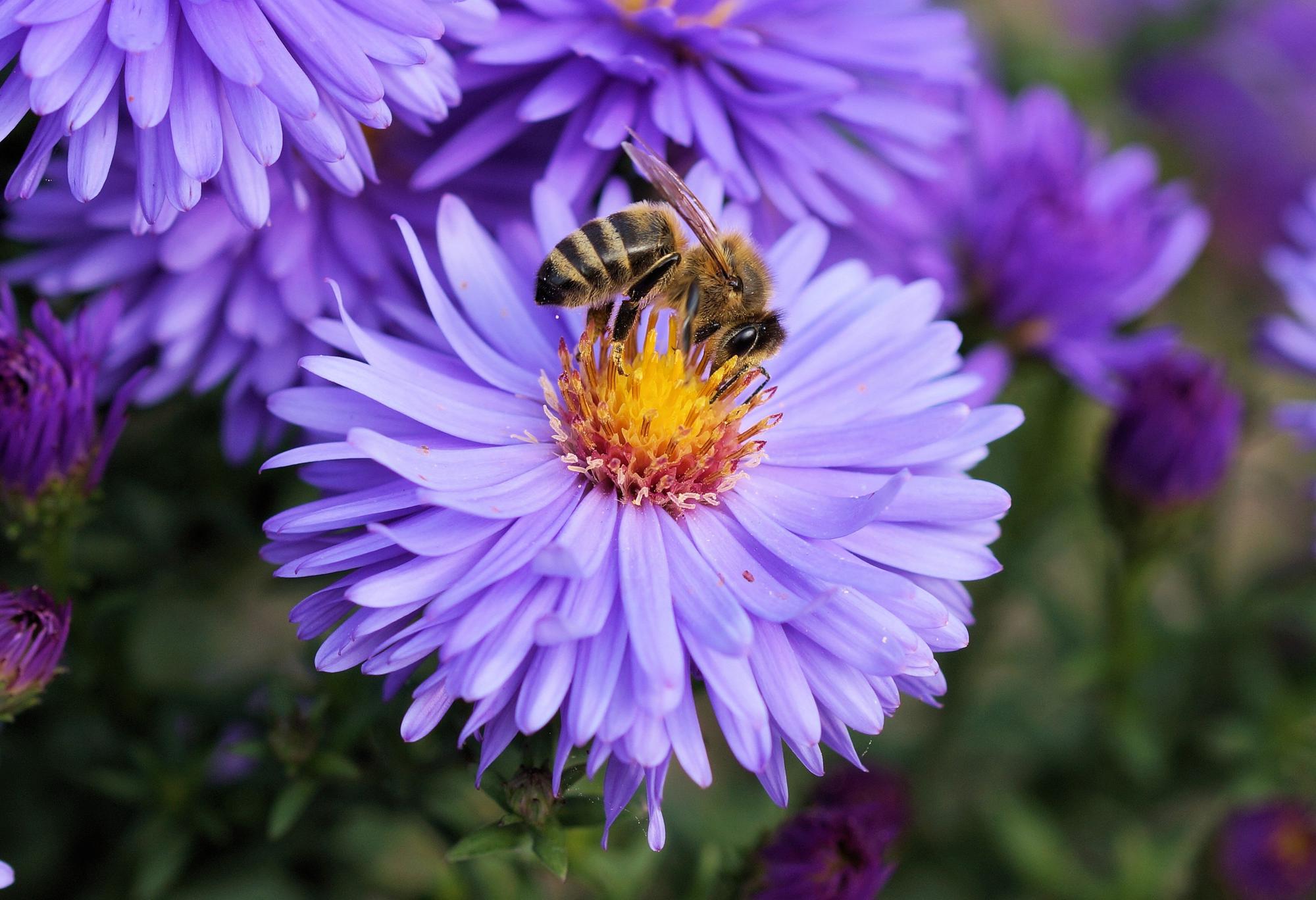Bees struggle to find flowers because of air pollution. A new study has found that air pollution is preventing pollinators from finding flowers because it degrades the scent.
A research team comprising the UK Centre for Ecology & Hydrology (UKCEH) and the Universities of Birmingham, Reading, Surrey and Southern Queensland found that ozone substantially changes the size and scent of floral odor plumes given off by flowers and that it reduces honeybees’ ability to recognize odors by up to 90% from just a few meters away.
Ground-level ozone typically forms when nitrogen oxide emissions from vehicles and industrial processes react with volatile organic compounds emitted from vegetation in the presence of sunlight.
Professor Christian Pfrang from the University of Birmingham, who collaborated on the research, said: “Our study provides robust evidence that the changes due to ground-level ozone on floral scent cause pollinators to struggle to carry out their crucial role in the natural environment, with implications for food security.”
Bees struggle to find flowers because of air pollution
The findings suggest that ozone is likely to have a negative impact on wildflower abundance and crop yields. International research has already established that ozone has a negative impact on food production because it damages plant growth.
Dr Ben Langford, an atmospheric scientist at UKCEH who led the study, said: “Some 75% of our food crops and nearly 90% of wild flowering plants depend, to some extent, upon animal pollination, particularly by insects. Therefore, understanding what adversely affects pollination, and how, is essential to helping us preserve the critical services that we rely upon for production of food, textiles, biofuels and medicines, for example.”
The researchers used a 30-meter wind tunnel at Surrey University to monitor how the size and shape of odor plumes changed in the presence of ozone. As well as decreasing the size of the odor plume, the scientists found that the scent of the plume changed substantially as certain compounds reacted much faster than others.
Read more at birmingham.ac.uk
Photo: birmingham.ac.uk


Leave a Reply